The Yorkville Enquirer reported on Oct. 17, 1888 – “James Beatty, a well known colored shoe maker, died on Oct. 13. He was once a slave of the late Col. Wm. C. Beatty and was aged 55 years.”
City Directories and History: A pivotal house, the Lowry house was once the “big house” of a plantation on the outskirts of town. It was built by Col. William C. Beatty, who purchased the land in 1834. The original property extended from just west of f the Presbyterian Church on up Wright Avenue. Built in the 1840s, the house displays double front doors and floor-length windows that slide in the walls to open, which made entertaining elegant and gracious since guests could easily move about from inside to the veranda. The kitchen was originally separated from the house as was the custom in the 1840’s. In 1884, the house was given to W. B. Moore and his bride, Annie Lee Adickes, as a wedding present. They lived here less than a year, for the bride was homesick. She lived “so far out in the country that there was only a mule path through the cotton fields to the house.” In 1915 the house was purchased by J. M. Starr as a wedding present for his daughter, Mary and her groom, Samuel Kenneth Lowry, Sr. Because previous owners had suffered with tuberculosis, Mr. Starr insisted on stripping all old plaster from the walls to sanitize the house. They worked one year to repair the house, including re-plastering. It was at this time that the home was remodeled and a Greek Revival gallery added. [Courtesy of the Yorkville Historical Society – 2002]
*** Historically, this was originally a duplex and was listed at #18 Wright Avenue in 1910.
RAILROADS COME TO YORK COUNTY – Several additional facts about the rail line from Columbia to Rock Hill may be of interest to the reader. First, the men from York District who attended the convention concerning the building of a railroad from Charlotte to Columbia were Colonel W. C. Beatty, William A. Latta, John Miller Ross, Robert Gadsden McCaw, William Moore, W. Giles, J. Beatty Smith, and Joel W. Rawlinson. This initial meeting of interested parties was held at Winnsboro on May 24 and 25, 1847.
Subscribers for stock in the Charlotte and South Carolina Railroad Company on September 9 and 10, 1847, were these: Colonel W. C. Beatty, John Miller Ross, Colonel William Wright, John S. Moore, W. I. Clawson, William A. Latta, George W. Williams, Colonel Edward Avery, Harvey Hugh Drennan, Rev. Archibald Whyte, Thomas D. Spratt, James D. Spratt, A. M. White, George P. White, William E. White, and Captain John Massey.
(Along the Landsford Road, by Wm. B. White, Jr. Vol., I – 2008)
DEATH OF COL. WILLIAM C. BEATTY About 9 o’clock on Wednesday night of last week, the report was rapidly spread over town that Col. Wm. C. Beatty had suddenly fallen dead near the rear gate of Mr. Joseph Herndon’s lot, on Madison street, which leads from Main street to Col. Beatty’s residence. [An inquest jury was impaneled and found that death was due to natural causes. A sketch of Colonel Beatty’s life followed in The Yorkville Enquirer, 29 April, 1880.]
WILLIAM CARLISLE BEATTY was born in Yorkville, S. C., on the 20th of November 1803. His education was begun when he was quite young, in the village school. When about twelve years old, he commenced under the Rev. Aaron Williams, the study of Latin and Greek. From the school of Rev. Mr. Williams he was sent, when in his fourteenth year to Statesville, N. C.; and placed in a school taught by the Rev. John Muchat. At Statesville he remained about a year, when Mr. Muchat having taken sick, and the school being temporarily suspended, young Beatty returned home.
Shortly after his return he was placed under the instruction of Mr. Nelson, at Ebenezer, in York County. In October, 1820, he entered the Sophomore class, half advanced, in the South Carolina College and graduated, in December, 1822, with the first honors of his class. After leaving college, Mr. Beatty began the study of law in the office of Col. Thomas Williams. It was not, however, his intention at that time ever to practice law. His object in reading law seems to have been to prepare himself for entering upon a political career.
The public life of Mr. Beatty commenced about the year 1824. At that time the publication of a weekly paper was undertaken in the town of Yorkville, by Messrs. Harris & McKee. For the period of about a year Mr. Beatty edited this journal, advocating with great energy and zeal the doctrine of States Rights and a limited construction of the Constitution of the United States.
During the Nullification struggle, Mr. Beatty took an active part. In connection with his brother-in-law, G. W. Williams, Col. Thomas Williams and Gen. James Rogers, he began the publication of the Yorkville Patriot. The object these gentlemen had in view by this publication, was to counteract the Nullification doctrine and disseminate Union sentiment. During the period of the Nullification contest, Mr. Beatty devoted his whole time and all the energies of his nature to the political issues of the day. He talked, made stump speeches, and wrote for The Patriot. He encouraged the Union men and did everything in his power to discomfit the Nullification party. In 1832, he was a candidate, for the House of Representatives, on the Union ticket but was beaten by 17 votes. In 1836, he was the Union candidate for the position of State Senator for York county, John Sitgreaves being his opponent. Mr. Beatty received 956 votes, and Mr. Sitgreaves 952. In 1864, Mr. Beatty was chosen a member of the House of Representatives, and again in 1874. Shortly after returning from college, Mr. Beatty joined a troop of cavalry, and not long afterwards was elected captain of an artillery company. Subsequently he was elected major, and then colonel of the Thirty-fourth regiment of militia.
Although Col. Beatty began the study of law soon after leaving college, he did not enter upon its practice, until the year 1846, at which the time the law firm of Williams & Beatty was formed. This co-partnership continued until 1866, when Col. Beatty was elected district judge. When the office of district judge was abolished, Col. Beatty returned to the practice of law. In his early life, Col. Beatty was skeptical in his religious notions, but about the year 1850 he made a profession of religion, connecting himself with Sharon Associated Reformed congregation. On the organization of the Associate Reformed Church in Yorkville, he transferred his membership to that place, and on the 25th of July, 1855, he was ordained and installed an elder.
In the early part of Col. Beatty’s life, he delivered, by invitation, quite a number of orations on particular occasions. He was enthusiastic in his love for American institutions. Hence, in those days, when the Fourth of July was celebrated in every community, Col. Beatty was often selected as the orator of the day. After connecting himself with the church, Col. Beatty became intensely interested in the temperance reform. Largely through his instrumentality, about twenty divisions of the Sons of Temperance were organized in York county, and he served one term as Grand Worthy Patriarch of the Grand Division of this State. As an active worker in the temperance reform, he was ever ready with his pen or tongue, and he wrote many articles on the subject, besides delivering lectures on the evils of intemperance.
No man ever possessed more marked characteristics than William C. Beatty. He was intensely accurate. We suppose it can be truthfully said of him that he never did anything carelessly. In fact, he was painfully particular. His literary attainments were varied and extensive; but his striking feature as a man of letters was his accuracy. His manuscript was correct—every word correctly spelled and every punctuation point down, and down at the right place; every t was crossed and every I dotted. We never saw the manuscript of any one equal to that of Col. Beatty, except it was that of Charles Anthony. This accuracy Col. Beatty carried into everything, and strange to say, it was often injurious. It detracted from his agreeableness as a companion, and weakened his force as a lawyer.
We suppose it would not be correct to say that Col. Beatty had a well-balanced mind. His intellect was decidedly strong; his sensibilities well marked; but his will was strong out of all proportion. Mental philosophers may account for this; we only state the fact. Col. Beatty’s will carried him like a majestic river by torrents of incessant rain. He never said yes or no doubtfully. Whatever he opposed or advocated, he opposed or advocated as if the destiny of the world depended on his success. During the latter half of his life Col. Beatty studied the Bible with great care. He read extensively theological works, and we may add that few men in his department of life have ever made greater attainment in theological knowledge. We honestly believe that he loved God sincerely and struggled to keep His commandments. He loved good men, and was intensely interested in conversing about experimental religion. On the 1st of November, 1825, Col. Beatty was married to Ann Marshall Yarborough, a most excellent woman. Mrs. Beatty died without issue, on the 27th of August, 1879. In the seventy-seventh year of his age, Col. Beatty died in Yorkville, on the 21st of April, 1880. (Information courtesy of and from: YCGHS – The Quarterly Magazine, June 2000)
Informative links: Greek Revival Architecture
Stay Connected
Explore history, houses, and stories across S.C. Your membership provides you with updates on regional topics, information on historic research, preservation, and monthly feature articles. But remember R&R wants to hear from you and assist in preserving your own family genealogy and memorabilia.
Visit the Southern Queries – Forum to receive assistance in answering questions, discuss genealogy, and enjoy exploring preservation topics with other members. Also listed are several history and genealogical researchers for hire.
User comments welcome — post at the bottom of this page.
Please enjoy this structure and all those listed in Roots and Recall. But remember each is private property. So view them from a distance or from a public area such as the sidewalk or public road.
Do you have information to share and preserve? Family, school, church, or other older photos and stories are welcome. Send them digitally through the “Share Your Story” link, so they too might be posted on Roots and Recall.
User comments always welcome - please post at the bottom of this page.
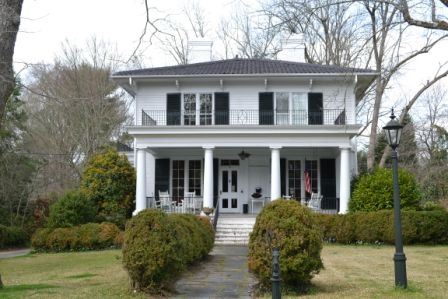
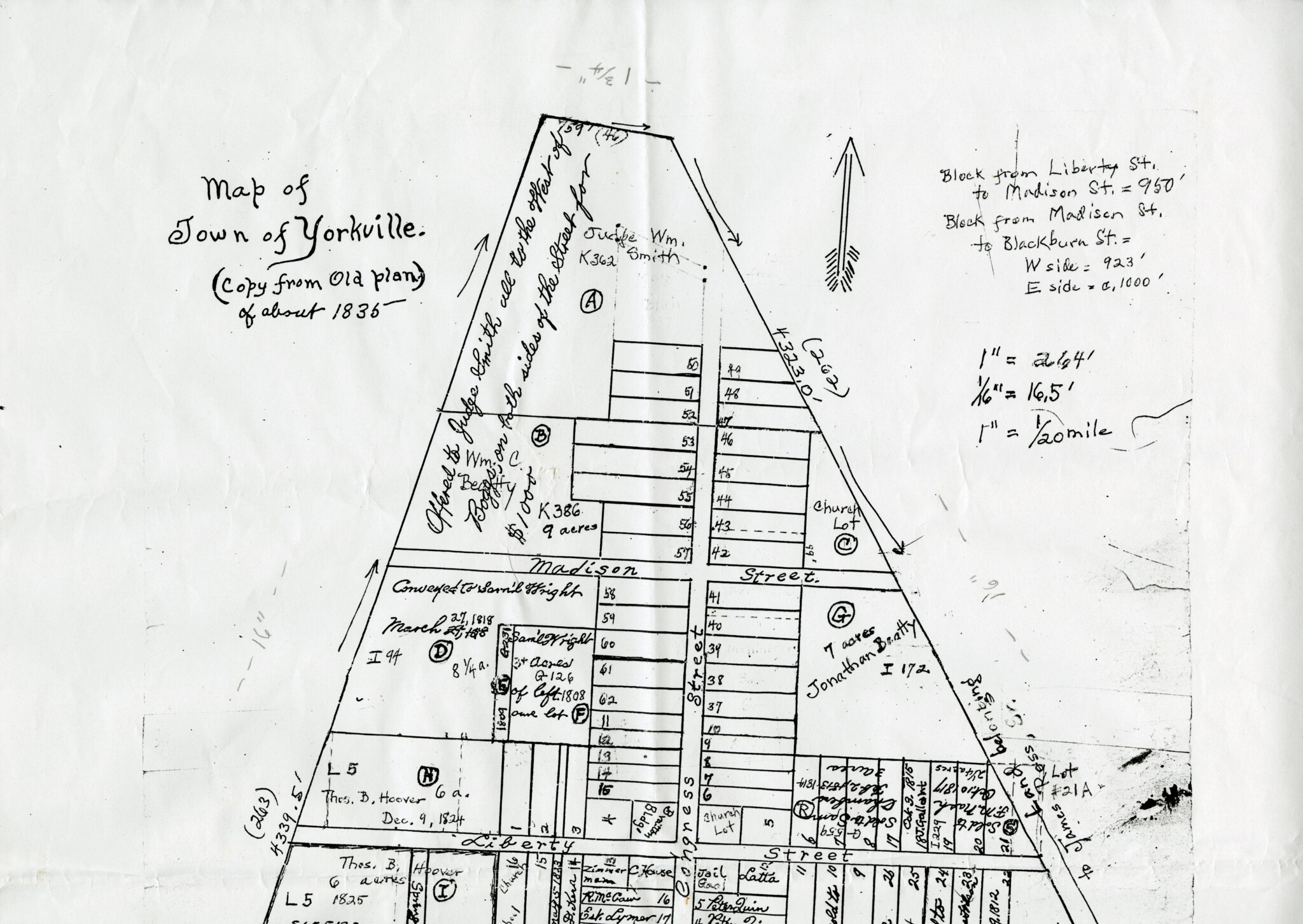
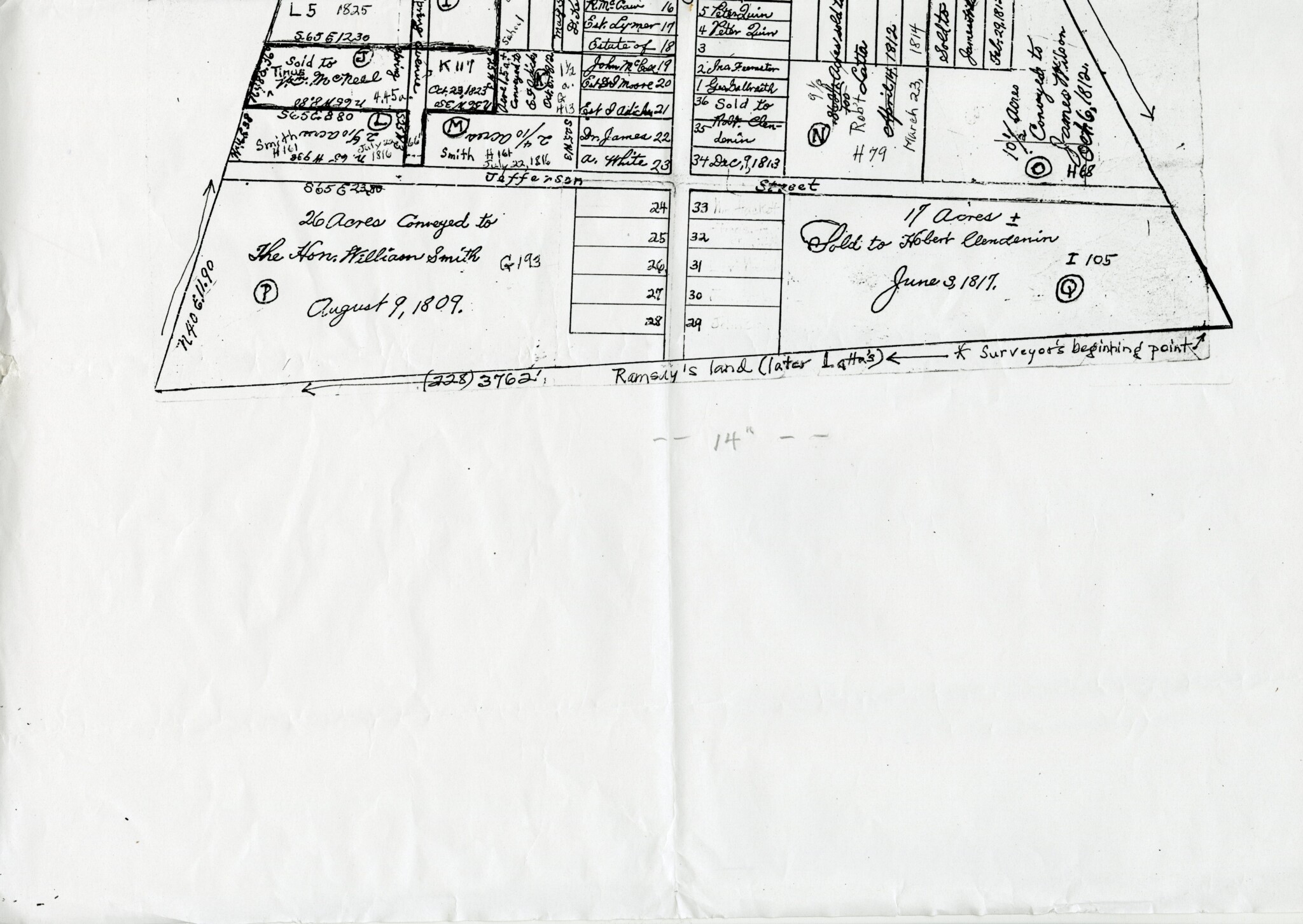
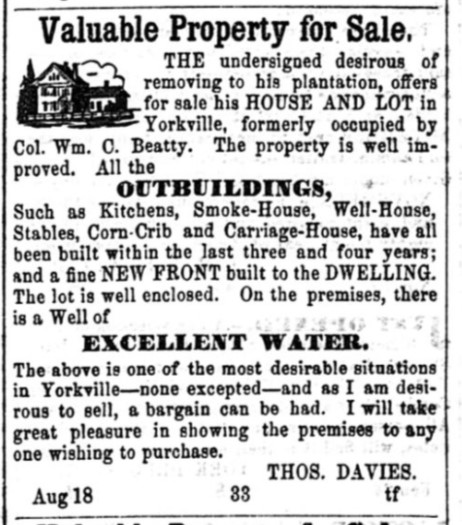
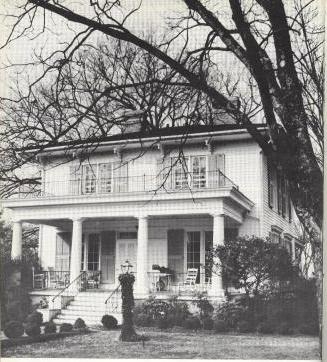
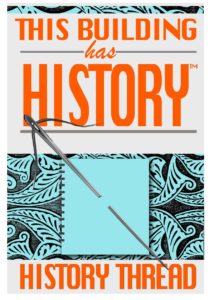


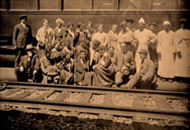
Share Your Comments & Feedback: